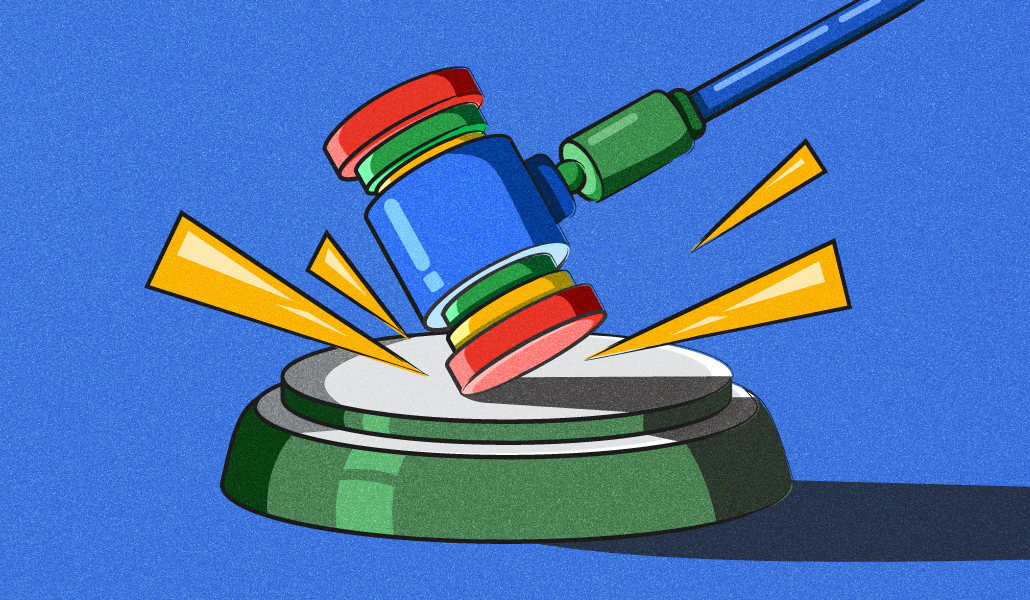Reports that the U.S. government is pushing for a breakup of Google are starting to emerge after a federal judge recently ruled that it monopolized the search engine market through illegal commercial deals.
These developments could fundamentally alter the advertising industry, albeit it’s worth noting that the resulting remedies from this case are far from certain, and Google intends to challenge this ruling.
However, citing sources from the Justice Department, Bloomberg reported that lawyers there are pushing for a wholesale dismantling of Google; such a development would fundamentally alter the landscape of the $300 billion online ad industry.
Of course, such reports are a precursor to a separate antitrust case whereby Google’s accusers claim it capitalized on its combination of ad tech tools — particularly its ad exchange and publisher ad server — to corner the programmatic ad market. Google disputes such claims.
Ahead of the Sept. 9 trial kick-off, Digiday probed its audience to gauge the opinions of professionals who interact with Google on a near-daily basis, i.e., agency staffers, brand marketers, retailers, publishers, and other tech professionals.
Among 48 respondents, a third (33%) believe that Chrome will replace Google Ads Manager should the DOJ pursue an additional divestiture of Google ad stack in the upcoming case, with 31% forecasting a loss in publisher revenues. Meanwhile, 35% predicted that independent rivals would participate in “an ad tech scramble” in the wake of any theoretical divestiture.
Responding to Digiday researchers in June, 48 respondents were quizzed on their thoughts over the likelihood of Google offering a voluntary divestiture, with just over half (54%) claiming they didn’t feel Google would offer such an olive branch. Meanwhile, 21% of respondents felt that such a move was likely in the works.
Meanwhile, 71% expressed an opinion that Google would cut a deal with antitrust authorities ahead of the court case, which is due to be hosted in Virginia. Just under a third of the 48 respondents believed that Google would take its chances and have its day in court.
During the same period as the research study, sources separately told Digiday that many believed Google’s legal team offered concessions, such as allowing third-party demand-side platforms to bid on its YouTube inventory—a privilege it revoked from competing DSPs in mid-2015. However, the sources reported that such offers were rebutted any such overtures.
Regardless of the proceeding of the trial or any prospective dealmaking (in either antitrust case), the outcome will profoundly impact the internet advertising landscape with sources. Sources are quick to raise comparisons with Microsoft’s similar antitrust skirmishes with the U.S. government in the late 90s and early 2000s, conflicts that many believe swallowed up huge resources there, and lead to a stagnation of its product development pipeline for many years.

